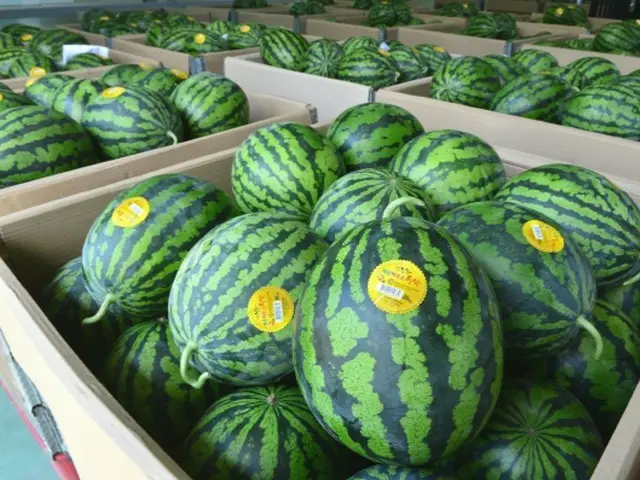The ministry said the price could reach 3,100 won (about 329 yen) per program, which is 17.4% higher than usual and 1.5% higher than last year.
Looking at the situation in the major watermelon producing areas, shipping volumes are good.
The harvest is expected to be good due to increased sunshine and less rain. The cultivated area in Eumseong and Jincheon counties in North Chungcheong Province has increased, and overall shipments in August are expected to increase 0.7% year-on-year.
The reason why prices are still expected to rise is that watermelon consumption has increased significantly due to the extreme heat. If the number of extreme heat events actually increases, watermelon prices will rise significantly.
Looking at data from the past 10 years, there is a tendency for prices to soar in hot years due to increased demand exceeding supply. In 2018, the amount of rice imported increased by 12.1%.
On the other hand, prices have risen by 52.2%. In 2023, despite a 4.1% increase in import volume, prices are expected to rise by 41.7%. Furthermore, the price rises of other fruits such as peaches and grapes are also contributing to the rise in the price of watermelon.
According to an analysis by the Korea Rural Economic Institute, Kawanakajima white peaches, a type of peach, are priced at 30,000 won per 4 kilograms, up 15.3 percent from last year, and peaches, a type of grape, are priced at 30,000 won per 4 kilograms.
The price of Campbell Early, which is also a popular choice, is also expected to rise by 3.7% to 25,000 won per 3 kilograms. In addition, the government's recently launched welfare subsidy is also expected to have an impact on the increase in watermelon consumption.
In a survey conducted by the institute, 56.4% of respondents indicated that they intended to increase their watermelon purchases as a result of receiving the subsidy.
It has been trending at a level far exceeding expectations.
2025/08/07 06:35 KST
Copyrights(C) Herald wowkorea.jp 104

